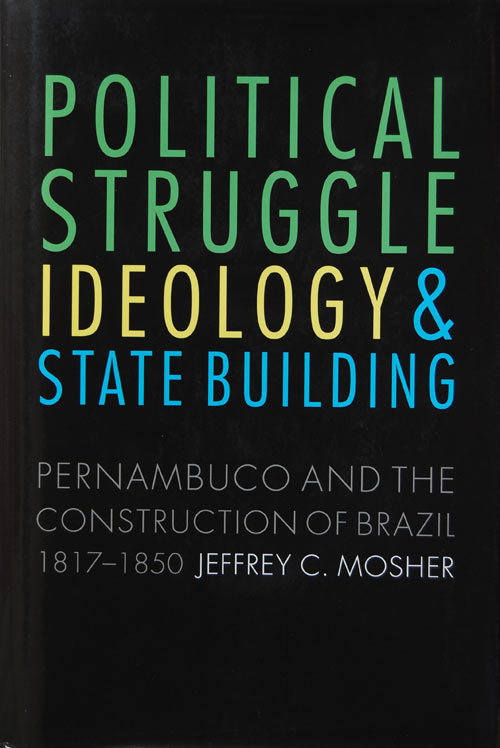Jeffrey Mosher
Email: Jeffrey.Mosher@ttu.edu
Ph.D., University of Florida
Jeffrey Mosher teaches Latin American History and World History. He is the author of Political Struggle, Ideology, and State Building: Pernambuco and the Construction of Brazil, 1817-1850. Dr. Mosher’s current research interests focus on religion in modern Brazil. He is conducting ethnographic research at the Odsal Ling Buddhist Temple near São Paulo. He teaches courses such as Global Buddhism, Religion in Latin America, History of Brazil and Historiography of the World. In 2013 Dr. Mosher participated in an N.E.H. Summer Seminar - Understanding Buddhism through its Classic Texts, a program designed to bring together leading scholars and university faculty to facilitate their bringing cutting-edge research to their classrooms.

Select Publications
Political Struggle, Ideology, and State Building: Pernambuco and the Construction of Brazil, 1817-1850
 The collapse of the Portuguese empire in the Americas in the early nineteenth century
did not immediately or easily translate into the formation of the independent nation-state
of Brazil. While "Brazil" had geographic meaning, it did not constitute a cohesive
political identity that could draw on basic loyalties. The tumultuous struggle to
nationhood in Brazil was marked by the interplay of differing social groups, political
parties, and regions. A series of violent revolts in Pernambuco, a large slaveholding,
sugar-producing province in northeastern Brazil, exposed the tensions accompanying
state and nation building. Political Struggle, Ideology, and State Building delves
into the complex and engaging history of the contested province of Pernambuco, providing
better understanding of the interplay between local and provincial social and political
struggles and the construction of the nation-state.
The collapse of the Portuguese empire in the Americas in the early nineteenth century
did not immediately or easily translate into the formation of the independent nation-state
of Brazil. While "Brazil" had geographic meaning, it did not constitute a cohesive
political identity that could draw on basic loyalties. The tumultuous struggle to
nationhood in Brazil was marked by the interplay of differing social groups, political
parties, and regions. A series of violent revolts in Pernambuco, a large slaveholding,
sugar-producing province in northeastern Brazil, exposed the tensions accompanying
state and nation building. Political Struggle, Ideology, and State Building delves
into the complex and engaging history of the contested province of Pernambuco, providing
better understanding of the interplay between local and provincial social and political
struggles and the construction of the nation-state.
Jeffrey C. Mosher reevaluates political parties, institutions long assumed to be mere facades for elite factions with identical interests. He demonstrates the importance of both formal political institutions and ideology, as well as the efforts of the lower classes to assert their own visions and values. Resentment of the Portuguese provided common ground for some elite factions and lower-class groups and figured importantly in defining the nation. Mosher's analysis clarifies how the lower class's assertiveness—in a society sharply divided by slavery, race, and class—frightened various elite groups into embracing both exclusionary discourses on race and the need for authoritarian, centralized political institutions, a development that proved to be an enduring legacy of the period.
Learn more at Amazon.com.
Department of History
-
Address
Texas Tech University, Box 41013, 3001 15th Street, Humanities (formerly English/Philosophy) 165, Lubbock, TX 79409 -
Phone
806.742.3744 | Fax: 806.742.1060 -
Email
info.history@ttu.edu
